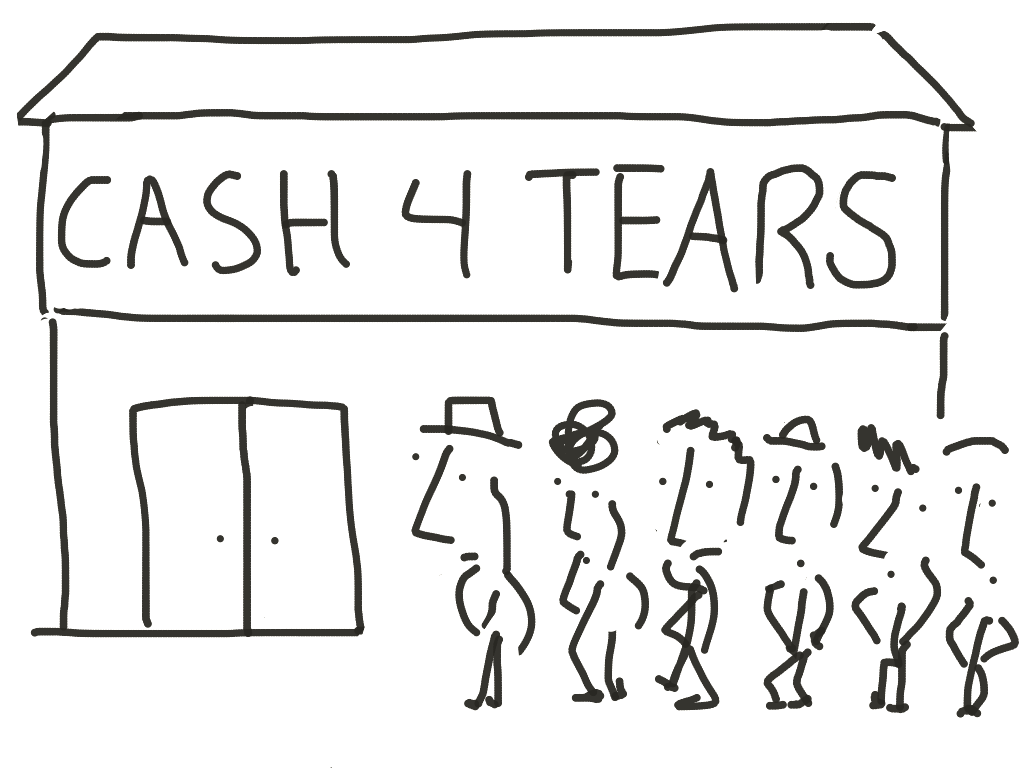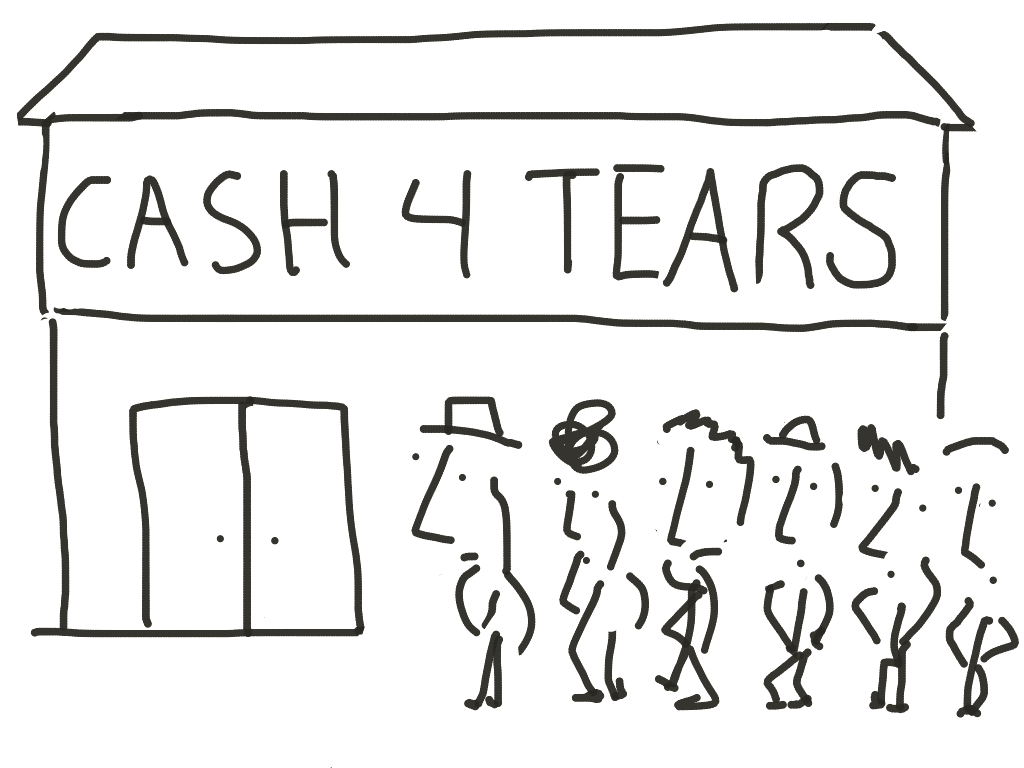Basically
This week, we lost an FBI director. Braced for the “tapes”. Regressed the war on drugs. Met Macron’s high school teacher. Took our 200th spacewalk. Delighted in podium-Segway for Sean Spicer. And saw our mums as we never saw them.
Dear mummy, thank you.
Verbatim
For the New Yorker, Rebecca Mead pulls a meandering yet gratifying thread through the evolution of fidget toys right on down and into the underbelly of the Trump administration. The trip is dark, charming and not for those in possession of Amazon’s bestselling toy. (Sorry.)
The fidget spinner, it could be argued, is the perfect toy for the age of Trump. Unlike the Tamagotchi, it does not encourage its owner to take anyone else’s feelings or needs into account. Rather, it enables and even encourages the setting of one’s own interests above everyone else’s. It induces solipsism, selfishness, and outright rudeness. It does not, as the Rubik’s Cube does, reward higher-level intellection. Rather, it encourages the abdication of thought, and promotes a proliferation of mindlessness, and it does so at a historical moment when the President has proved himself to be pathologically prone to distraction and incapable of formulating a coherent idea.

Things
Staying on it, Ian Bogost’s self-proclaimed “takiest-of-takes” considers the fidget spinner as “a rich, dense fossil of the immediate present,” characterized by a tension between individuality and sharable content. If you can’t get enough of Bogost on things, check out the Object Lessons book series he co-edits, which includes riveting titles such as Glass, Remote Control, and Refrigerator.
This week’s epidemic of ransomware attacks exposed the intractable problems of big-institution software security. Hospitals, like all vast bureaucracies, cling to ancient installs like a threadbare comfort blanket, and IT’s reluctance to figure out how to support a prettier new version of Outlook leaves gaping, unpatched holes just waiting to be exploited. As ever, when it comes to big stories about hacks, encryption or security, turn first to Zeynep Tufekci to make sober sense of what’s going on. “Our software evolves by layering new systems on old, and that means we have constructed entire cities upon crumbling swamps. And we live on the fault lines where more earthquakes are inevitable.”
Many explainer-journalism/interactive-data projects are fun ideas. But their pretensions of open, rich data are often thin excuses for self-indulgent data-dumps that reflect no real interest in accessibility or interaction. So Matt Daniels’ projects are a breath of fresh air. His new publication The Pudding maintains the light-hearted air of his original rap-data-viz side-projects from back in 2014 (The Etymology of Shorty in Hip-Hop and Outkast, in Charts), while aiming at more complex, slightly more serious targets. They’re now promising weekly publication, open-source code and, this week, they’ve returned to their lyrical roots.
A slightly sadder infographic: for their latest edition, dedicated to local news, Columbia Journalism Review mapped America’s “news deserts” – the areas of the country where no local daily news outlet exists at all. Of course, this hollowed-out landscape isn’t unique to the US, as the recent consolidation of the entire news media of Canada’s east coast into one convenient asset-strip-ready bundle shows, but it’s important to note how many major cities are quickly succumbing to the desertification. Methodology check though: this map is all about print, and we’d love to see an inverse map that highlights digital projects which tread the mundane but oh-so-critical daily local beat.
From news deserts to book deserts, we’re not really sure those little book boxes in tony neighbourhood streets are as fundamental a problem as these guys seem to think, but it’s an opportunity to link to the Journal of Radical Librarianship, and that seems important. Their fundamental point is a super good one: libraries rock, and we don’t give them anywhere near enough love.
Over at The Baffler, Gillian Terzis looks at a health startup that’s attempting to abstract ideas of sickness out of healthcare, missing the point of what’s broken through the fog of privilege, as technocrats “do not realize that it is the prohibitive cost of accessing services, rather than a clinic’s ambience, that actually matters.”
At the dawn of critical internet thinking in the 1990s, the Accelerationist movement was the wild child the academy needed. It was a container of punk possibility beyond postmodernism, a seductive provocation that imagined the dark implications of technology in a way the rainbow utopias of the Wired world never could. The thinking was a drug, fuelled by plenty of other great drugs alongside, and the movement’s legacy is madness in many forms. As leading light Nick Land now happily serves as theorist-in-chief for the alt-right, it’s worth looking at Andy Beckett’s excellent dive into Accelerationist history for The Guardian to see how a largely left-leaning cabal of social theory academics came to prefigure, and participate in, the apocalyptic technolibertarian endgame that is our current moment.
This Medium post by two Google researchers and a Princeton academic is long and dense, but does a really good job of explaining how current studies around AI systems built to identify social traits, and potentially crimial behaviour, through surveillance and facial recognition, are simply part of a long history of racist pseudoscience, “replacing biased human judgment with a machine learning technique that embeds the same bias — and more reliably.” Keep this in mind while pondering Nvidia’s new Metropolis platform, an all-in vision for the observed city, all watched over by algorithms of loving grace.
When Uber set up shop in Pittsburgh, they poached talent from Carnegie Mellon University’s internationally-acclaimed AI research labs and avoided any formal obligations to the school. Now they’ve come to Toronto’s Vector institute to work alongside researchers from the University of Toronto. Here’s hoping they’ll face the full scrutiny of Toronto’s flourishing civic-tech community. Uber should be held accountable for not only making their research available to the public, but orienting it in the public interest.
“Why don’t people want to believe it is real? This is the realest thing that should exist.”
It’s been a while since we’ve sung the praises of Kickstarter’s publishing project, The Creative Independent. But let us earnestly say that it’s grown into the most excellent, warm, resource of creative sparkage. If your Sunday afternoon is feeling stuck, dive into some random conversations and just eavesdrop.
This email has been compromised and you need to send us some Bitcoin. Actually, wait, we have no idea how to spend Bitcoin. Why don’t you send us one friend instead? Yes, that’ll do. Ransom: send us one friend. If you fail to comply, you will continue to receive this email and we won’t have one more friend. Hmm. Are we doing this right?





